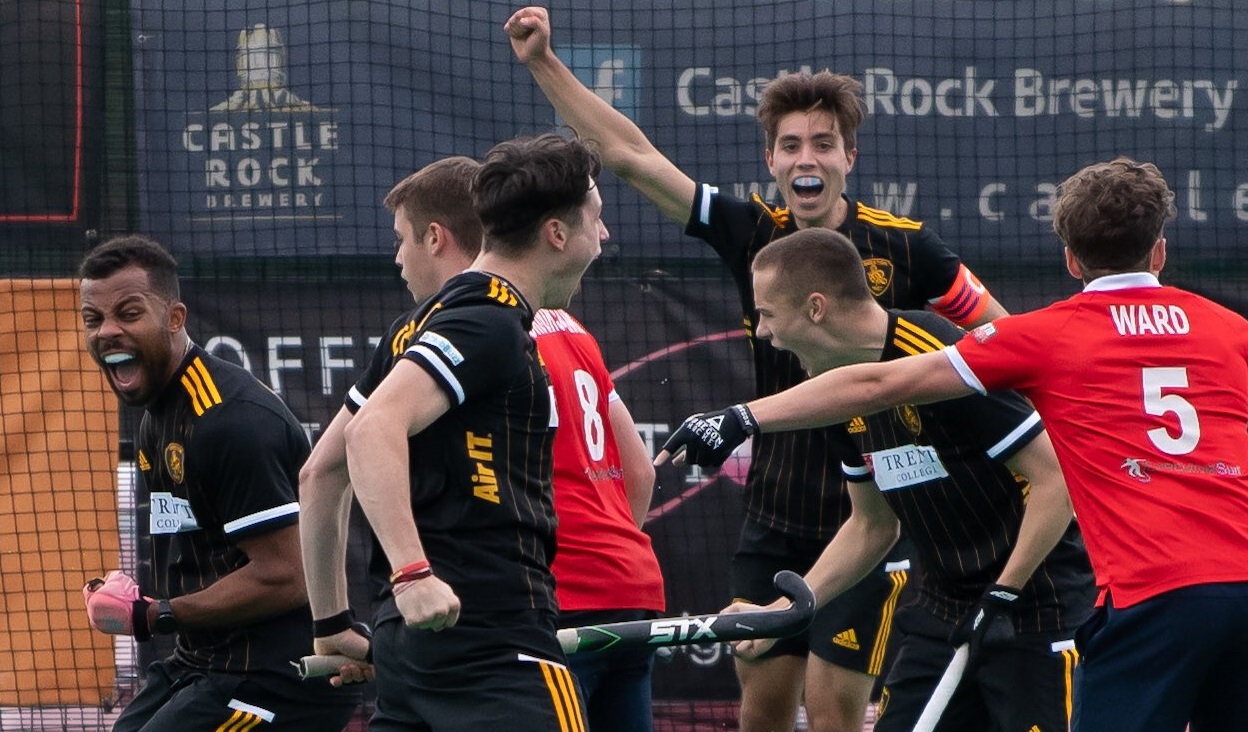Hockey is played all over the UK but concentration of talent impacts game’s image to detriment of all, writes ALASTAIR WHATLEY
With upwards of a thousand members split across mens, womens and juniors, club communications, as secretary, is an important and often daunting job.
Over lockdown I tried to re-energise our club newsletter which, in search of material, sent me combing through archives of newsletters of old. I was amazed to see not just the success of the club but also the incredible array of sponsors, press coverage and acclaim that came not just the way of Southgate but to the sport in general. Regular features on the back pages of the broadsheets, proper coverage of the league, and headline sponsors to match. It feels a million miles from where we are at here in 2022.
I’ve become quite the evangelist for the sport in the interim and the cameras which we are installing here at Southgate exemplify the ambition here for more people to watch not just Southgate games but more hockey in general. Perhaps through my own inadequate efforts at playing the sport, I have come to appreciate the remarkable skills, strength and agility players need to survive and thrive at the higher levels.
Continue reading...

Unlock our ad-free, premium content and get use of our subscriber-only app. Use coupon 3FOR1 to get 3 months for only £1!
Already a subscriber to our website? Login
Alastair Whatley is Southgate’s club secretary. You can read more of his columns here





“Most importantly, how can we ensure that our Premier sides are better reflective of all of England and not just the wealthier clubs sat around London’s M25 and some wealthy universities.”
That is going to be very difficult to change, the standard of hockey in London and the South has always been higher than elsewhere. It has a much higher density of independent schools, which employ many coaches/players enabling them to stay in hockey in a fulltime capacity.
The central programme has also focused talent into the “Greater Bisham” area. When players exit the central programme they have tended to stay around – quite understandably – in that area. This gives a wealth of experienced talent for clubs to use as current players or as coaches, further improving the standard around, enabling a critical mass of good players/coaches
Contrast that with the North West, where on the men’s side I can only think of Scott Cordon (Didsbury N coach) and John Bell (Neston coach) who have played internation hockey for England in the past 20 years. Better coaches make better players, there is a dearth of top level coaches here and ex top players, to really inspire the next generation.
Also the travel to play in the men’s premier league does become a problem for some folks up here, Beeston 1h50, Durham 2h10 are local rivalries, after that it is Hampstead which is a very full day on the road and playing, some people find it too much as an amateur sport.
Wealthy universities, it is their money to spend as they decide, not sure it is the best use of their money IMO, but it has led to a rise in the number of well coached, good standard hockey players leaving uni each year, where they are essentially full time hockey players. Would be good to see a Hockey Paper in depth article on the benefits/scholarships being offered by the various Unis. Down at Exeter one dad was bemoaning the Exeter didn’t offer anything like the reputed Gold, Silver, Bronze scholarships of Nottingham Uni.
Currently Manchester Uni doesn’t offer scholarships for hockey
Not sure the problem is solvable but can easily see a day when no North club (not Uni) is in the Premier division on a regular basis. I expect, and hope, that Beeston will be able to survive in the prem as the Midlands representative (normal club not Uni)
It’s a real issue. And not helped by the presence of universities in the higher echelons of the National League. They dilute the pool of talent available to local clubs and are able to lure players with lucrative scholarships which the clubs cannot match.
Take Beeston, for example. Where they previously had the input from talented students – albeit temporarily for the tenure of their studies – they now have to compete with Nottingham Uni – who will be in the Premier League next year – and Nottingham Trent who now have pretensions of their own. Universities aren’t really clubs; they simply provide playing opportunities for a temporary period – and provide financial incentives for those who come. So instead of these students bolstering the local clubs (which are the lifeblood of our sport – or should be) they contribute nothing and simply reduce the pool of players available.
It’s a bit like the public schools which are forming themselves into “clubs” instead of feeding the existing clubs. We’ll be reduced to a bunch of public school and university clubs fighting it out for honours with the moneyed London set-ups while the rest of us grovel around in the lower leagues.
I agree with Wendy about the universities – the optimum model for that is perhaps Bath, where the students are highly competitive on a Wednesday in BUCs, but then filter in to Team Bath Buccs at the weekends, as part of a ‘separate’ club. Apart from Repton HC, who are the other public schools forming their own clubs?
It is also worth noting that the university hockey model also is largely based around ‘top’ RG universities, who are also producing well-rounded high-performing graduates who all want to head to London for work – this also explains the strength of so many of the London clubs who offer ‘play and work’ – entire cohorts of ex-Uni mates flood a club, and all within the M25….the problem isn’t just about 4 Prem clubs and the GB boys!